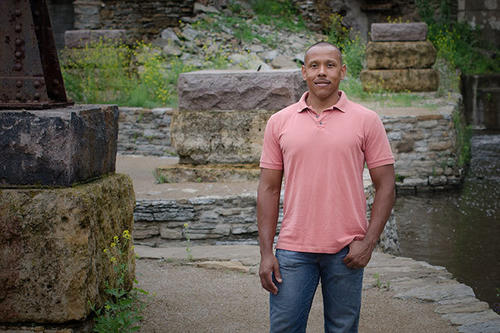
A set of precious books sits in the office of Associate Professor J. B. Mayo., Jr. Two are red leather-bound social studies textbooks from the early 1950s. Another is a fragile, brown logic textbook, dated 1891. The books belonged to Mayo’s great-grandfather—Charles Franklin Simpson—the son of a slave: “Alfred X,” says Mayo.
“We never knew his last name.”
Today, Mayo is an educator from a lineage spanning four generations—beginning with his great-grandfather. His role now is to prepare those who will teach the next generation.
Mayo, a faculty member in the department of Curriculum and Instruction, also pursues a full line of research, including how to bring LGBTQ histories into public school curriculums.
“While many of our textbooks and classroom materials pay lip service to LGBTQ inclusivity,” says Mayo, “the achievements and contributions of LGBTQ people have [often] been left out of history books.”
For example, says Mayo, “We should not talk about Martin Luther King Jr. without recognizing the contributions of his openly gay speechwriter, Bayard Rustin, who helped organize the March on Washington but was barred from speaking there because of his sexual orientation.”
Making sure all identities are represented in the curriculum matters to students. Researchers have found that students who identify as LGBTQ have higher levels of stress, absenteeism, dropout rates, and suicide.
“This isn’t about using little-known incidents from history to highlight the contributions of gay and lesbian people,” says Mayo. “It’s about acknowledging their role in the history we’re already teaching.”
- Categories:
- Education





